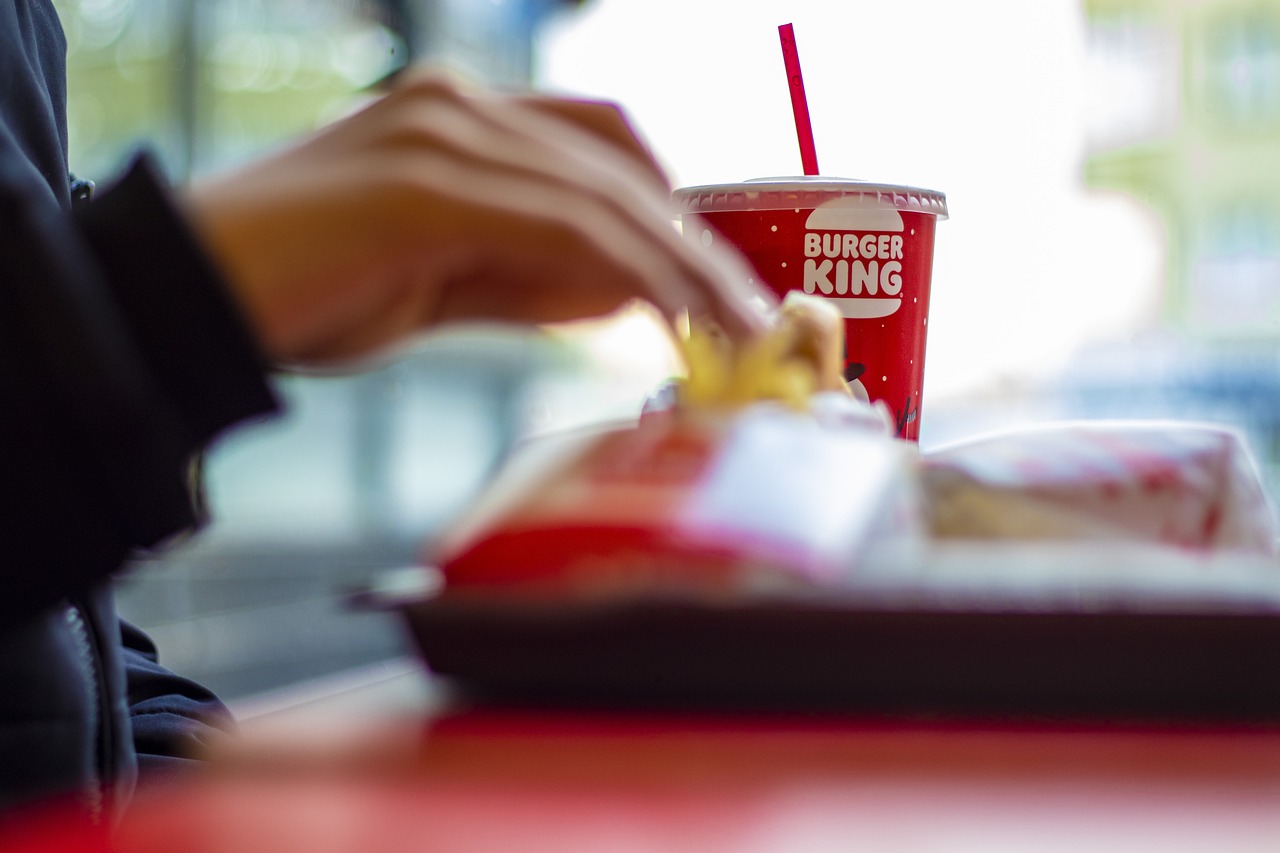Burger King is making some changes in its restaurants in the United Kingdom. It announced that it would permanently ban soft drink plastic lids and other single-use plastic in all of its locations across the U.K.
Burger King said that it is making this move as part of its efforts for sustainability. This is one huge step to going green and is predicted to cut out about 30,000 kilograms of plastic per year. This will also take away a massive 17 million plastic lids from circulation.
In 2019, the global burger joint brand already stopped including plastic toys in its King Jr. Meals, and now, it is removing all the plastic lids on drink cups of customers who are dining in BK restaurants around the country. The company melted all the plastic toys for recycling at that time, so the plastics did not end up in landfills.
Moreover, the fast-food chain said that this decision is also being carried out to fulfill or implement its ongoing commitment to attaining the goal of 0% single-use plastic by the year 2025.
The full list of beverages and items that will be affected by the removal of plastic lids includes Coke drink products, Sprite, Fanta, Dr. Pepper, frozen drinks, milkshakes, and other freestyle drinks. This Burger King initiative was described as a bold undertaking for quick-service restaurants (QSR) in the UK.
Then again, it was clarified that some beverages may still be served with lids on. Products, including hot drinks, delivery orders, and food-to-go, may still have them for health and safety precautions.
“We are excited to be introducing this permanent removal of plastic lids in restaurants, ultimately reducing single-use plastics,” Oxford Mail quoted Burger King UK’s chief marketing officer, Katie Evans, as saying in a statement. “Our Meltdown campaign in 2019, removing plastic toys from King Jr Meals, was the first significant step on our journey and this next step will take us closer to reaching our target of removing all single-use plastic by 2025.”
Photo by: uluer servet yüce/Pixabay



 Toyota’s Surprise CEO Change Signals Strategic Shift Amid Global Auto Turmoil
Toyota’s Surprise CEO Change Signals Strategic Shift Amid Global Auto Turmoil  SpaceX Pushes for Early Stock Index Inclusion Ahead of Potential Record-Breaking IPO
SpaceX Pushes for Early Stock Index Inclusion Ahead of Potential Record-Breaking IPO  Once Upon a Farm Raises Nearly $198 Million in IPO, Valued at Over $724 Million
Once Upon a Farm Raises Nearly $198 Million in IPO, Valued at Over $724 Million  Nvidia, ByteDance, and the U.S.-China AI Chip Standoff Over H200 Exports
Nvidia, ByteDance, and the U.S.-China AI Chip Standoff Over H200 Exports  South Africa Eyes ECB Repo Lines as Inflation Eases and Rate Cuts Loom
South Africa Eyes ECB Repo Lines as Inflation Eases and Rate Cuts Loom  Prudential Financial Reports Higher Q4 Profit on Strong Underwriting and Investment Gains
Prudential Financial Reports Higher Q4 Profit on Strong Underwriting and Investment Gains  Thailand Inflation Remains Negative for 10th Straight Month in January
Thailand Inflation Remains Negative for 10th Straight Month in January  Sony Q3 Profit Jumps on Gaming and Image Sensors, Full-Year Outlook Raised
Sony Q3 Profit Jumps on Gaming and Image Sensors, Full-Year Outlook Raised  Hims & Hers Halts Compounded Semaglutide Pill After FDA Warning
Hims & Hers Halts Compounded Semaglutide Pill After FDA Warning  TrumpRx Website Launches to Offer Discounted Prescription Drugs for Cash-Paying Americans
TrumpRx Website Launches to Offer Discounted Prescription Drugs for Cash-Paying Americans  India–U.S. Interim Trade Pact Cuts Auto Tariffs but Leaves Tesla Out
India–U.S. Interim Trade Pact Cuts Auto Tariffs but Leaves Tesla Out  Dow Hits 50,000 as U.S. Stocks Stage Strong Rebound Amid AI Volatility
Dow Hits 50,000 as U.S. Stocks Stage Strong Rebound Amid AI Volatility  Gold Prices Slide Below $5,000 as Strong Dollar and Central Bank Outlook Weigh on Metals
Gold Prices Slide Below $5,000 as Strong Dollar and Central Bank Outlook Weigh on Metals  South Korea Assures U.S. on Trade Deal Commitments Amid Tariff Concerns
South Korea Assures U.S. on Trade Deal Commitments Amid Tariff Concerns  Trump Lifts 25% Tariff on Indian Goods in Strategic U.S.–India Trade and Energy Deal
Trump Lifts 25% Tariff on Indian Goods in Strategic U.S.–India Trade and Energy Deal  China Extends Gold Buying Streak as Reserves Surge Despite Volatile Prices
China Extends Gold Buying Streak as Reserves Surge Despite Volatile Prices 































